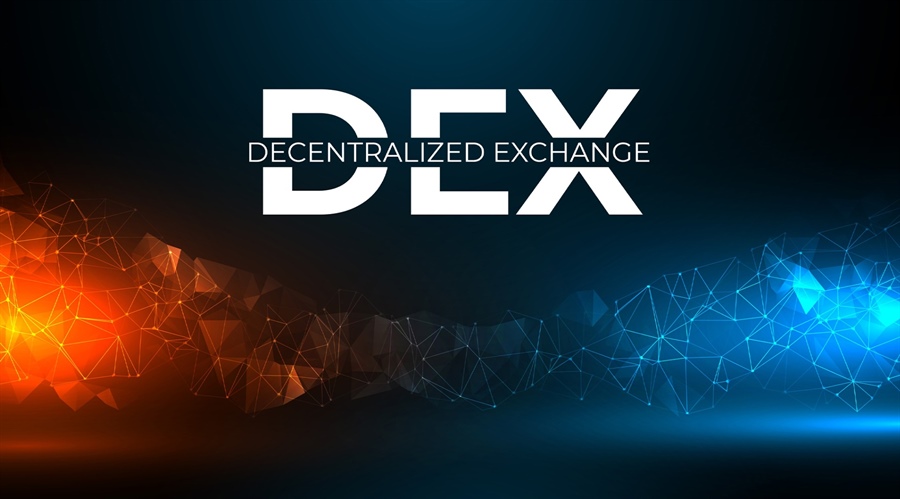The rise of decentralized finance (DeFi) has been one of the most significant developments in the cryptocurrency market over the past few years. DeFi is a new financial system built on top of blockchain technology that allows for peer-to-peer transactions without the need for intermediaries like banks or traditional financial institutions. In this article, we’ll explore the role of DeFi in the cryptocurrency market, how it works, and its potential benefits and risks.
What is Decentralized Finance (DeFi)?
Decentralized finance (DeFi) is a new financial system built on top of blockchain technology. It allows for peer-to-peer transactions without the need for intermediaries like banks or traditional financial institutions. Instead, transactions are facilitated by smart contracts, which are self-executing contracts that automatically execute when certain conditions are met.
How Does DeFi Work?
DeFi is built on top of blockchain technology, which is a decentralized ledger that allows for secure, transparent, and immutable transactions. Blockchain technology allows for the creation of smart contracts, which are self-executing contracts that automatically execute when certain conditions are met.
DeFi applications are built on top of blockchain technology and allow users to lend, borrow, trade, and invest in cryptocurrencies without the need for intermediaries. DeFi applications are decentralized, meaning that they are not controlled by a single entity, but rather by the community of users that use them.
Benefits of DeFi
Decentralization
The primary benefit of DeFi is decentralization. Decentralization means that there is no central authority controlling the system. This makes DeFi more resilient to censorship and reduces the risk of systemic failures.
Accessibility
DeFi allows anyone with an internet connection to access financial services. This is particularly important for people who are unbanked or underbanked. DeFi allows people to access financial services without the need for a bank account or credit history.
Transparency
DeFi is built on top of blockchain technology, which allows for transparent and immutable transactions. This means that anyone can view the transactions that take place on the blockchain.
Risks of DeFi
Smart Contract Risks
DeFi relies on smart contracts, which are self-executing contracts that automatically execute when certain conditions are met. If there are bugs or vulnerabilities in the smart contract code, it can lead to financial losses for users.
Volatility
Cryptocurrencies are known for their volatility, and this is no different in the DeFi space. The value of cryptocurrencies can fluctuate rapidly, leading to potential financial losses for users.
Regulation
DeFi is a new industry, and regulators are still trying to figure out how to regulate it. This uncertainty can create challenges for DeFi applications, as they may not know how to comply with regulations.
Security
DeFi applications are built on top of blockchain technology, which is generally considered to be secure. However, there have been several high-profile hacks of DeFi applications, which have resulted in significant financial losses for users.
The Future of DeFi
DeFi is still in its early stages, but it has the potential to revolutionize the financial industry. As more people adopt cryptocurrencies and blockchain technology, the demand for DeFi applications will likely continue to grow.
Types of DeFi Applications
There are several types of DeFi applications that exist in the cryptocurrency market. Some of the most popular ones include:
Decentralized Exchanges (DEXs)
DEXs are platforms that allow users to trade cryptocurrencies without the need for intermediaries like banks or traditional financial institutions. These exchanges are decentralized, meaning that they are not controlled by a single entity, but rather by the community of users that use them. Some popular DEXs include Uniswap, SushiSwap, and Curve.
Decentralized Lending and Borrowing Platforms
DeFi lending and borrowing platforms allow users to lend and borrow cryptocurrencies without the need for intermediaries. These platforms use smart contracts to automate the lending and borrowing process. Some popular DeFi lending and borrowing platforms include Aave, Compound, and MakerDAO.
Decentralized Insurance
Decentralized insurance platforms use smart contracts to automate the insurance process. These platforms allow users to insure against specific risks, such as smart contract failures or hacks. Some popular decentralized insurance platforms include Nexus Mutual and Cover Protocol.
Advantages of DeFi over Traditional Finance
There are several advantages of DeFi over traditional finance. Some of these advantages include:
Lower Fees
DeFi applications often have lower fees than traditional finance applications. This is because there are no intermediaries involved, which reduces the costs associated with transactions.
Faster Transactions
DeFi transactions are often faster than traditional finance transactions. This is because there are no intermediaries involved, which reduces the time it takes for transactions to be processed.
More Accessible
DeFi applications are more accessible than traditional finance applications. This is because anyone with an internet connection can access DeFi applications, whereas traditional finance applications often require a bank account or credit history.
DeFi and Financial Inclusion
One of the potential benefits of DeFi is that it can increase financial inclusion for people who are unbanked or underbanked. In many parts of the world, traditional financial institutions are not accessible to everyone, which can make it difficult for people to access basic financial services like savings accounts, loans, and insurance.
DeFi applications can help to address this problem by allowing anyone with an internet connection to access financial services. Because DeFi applications are built on top of blockchain technology, they are not controlled by a single entity, which reduces the barriers to entry for users.
This can have a significant impact on people’s lives, as it can allow them to access financial services that they may not have had access to otherwise. This can help to reduce poverty, increase economic growth, and promote financial stability.
DeFi and Sustainability
Another potential benefit of DeFi is that it can promote sustainability in the financial industry. Traditional finance has often been criticized for its lack of transparency and accountability, as well as its role in financing environmentally harmful industries.
DeFi applications can help to address this problem by promoting transparency and accountability in the financial industry. Because DeFi applications are built on top of blockchain technology, transactions are transparent and can be audited by anyone. This can help to reduce corruption and increase trust in the financial industry.
Additionally, DeFi applications can be used to promote sustainable financing by allowing users to invest in projects that promote sustainability. This can help to promote the transition to a more sustainable economy.
Conclusion
Decentralized finance (DeFi) is a new financial system built on top of blockchain technology. It allows for peer-to-peer transactions without the need for intermediaries like banks or traditional financial institutions. While DeFi has many potential benefits, it also has risks that users need to be aware of. As the cryptocurrency market continues to evolve, DeFi is likely to play an increasingly important role.




